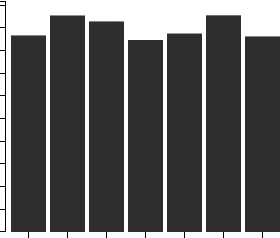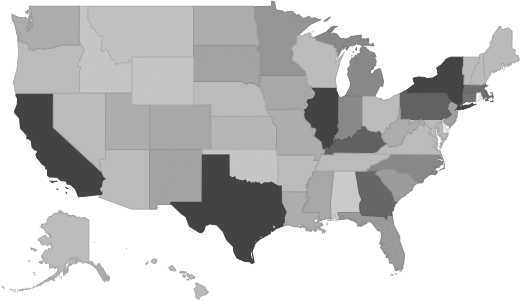Fruit and Vegetable Canning - Market Size, Financial Statistics, Industry Trends
Industry Overview
This U.S. industry comprises establishments primarily engaged in manufacturing canned, pickled, and brined fruits and vegetables. Examples of products made in these establishments are canned juices; canned jams and jellies; canned tomato-based sauces, such as catsup, salsa, chili sauce, spaghetti sauce, barbeque sauce, and tomato paste; and pickles, relishes, and sauerkraut. Cross-References. Establishments primarily engaged in--Source: U.S. Census Bureau
Fruit and Vegetable Canning Market Size
This report includes historical and forecasted market sizes and industry trends for Fruit and Vegetable Canning. It reveals overall market dynamics from 2021 through the present, and predicts industry growth or shrinkage through 2031. Revenue data include both public and private companies in the Fruit and Vegetable Canning industry.| Historical | Forecasted | ||||||||||
|---|---|---|---|---|---|---|---|---|---|---|---|
| 2021 | 2022 | 2023 | 2024 | 2025 | 2026 | 2027 | 2028 | 2029 | 2030 | 2031 | |
| Market Size (Total Revenue) | Included in Report |
||||||||||
| % Growth Rate | |||||||||||
| Number of Companies | |||||||||||
| Total Employees | |||||||||||
| Average Revenue per Company | |||||||||||
| Average Employees per Company | |||||||||||
Industry Revenue ($ Billions)

Industry Forecast ($ Billions)

Pell Research's advanced econometric models forecast five years of industry growth based on short- and long-term trend analysis. Market size statistics include revenue generated from all products and services sold within the Fruit and Vegetable Canning industry.
Geographic Breakdown by U.S. State
Fruit and Vegetable Canning market share by state pinpoints local opportunities based on regional revenue statistics. Growth rate for each state is affected by regional economic conditions. Data by state can be used to locate profitable and nonprofitable locations for Fruit and Vegetable Canning companies in the United States.Industry Revenue by State

Distribution by Company Size
| Company Size | All Industries | Fruit and Vegetable Canning |
|---|---|---|
| Small Business (< 5 Employees) | Included |
|
| Small Business (5 - 20) | ||
| Midsized Business (20 - 100) | ||
| Large Business (100 - 500) | ||
| Enterprise (> 500) | ||
Industry Income Statement (Average Financial Metrics)
Financial statement analysis determines averages for the following industry forces:- Cost of goods sold
- Compensation of officers
- Salaries and wages
- Employee benefit programs
- Rent paid
- Advertising and marketing budgets
The report includes a traditional income statement from an "average" Fruit and Vegetable Canning company (both public and private companies are included).
| Industry Average | Percent of Sales | |
|---|---|---|
| Total Revenue | Included |
|
| Operating Revenue | ||
| Cost of Goods Sold (COGS) | ||
| Gross Profit | ||
| Operating Expenses | ||
| Operating Income | ||
| Non-Operating Income | ||
| Earnings Before Interest and Taxes (EBIT) | ||
| Interest Expense | ||
| Earnings Before Taxes | ||
| Income Tax | ||
| Net Profit | ||
Average Income Statement

Cost of Goods Sold
Salaries, Wages, and Benefits
Rent
Advertising
Depreciation and Amortization
Officer Compensation
Net Income
Financial Ratio Analysis
Financial ratios allow a company's performance to be compared against that of its peers.| Financial Ratio | Industry Average |
|---|---|
| Profitability Ratios | Included |
| Profit Margin | |
| ROE | |
| ROA | |
| Liquidity Ratios | |
| Current Ratio | |
| Quick Ratio | |
| Activity Ratios | |
| Average Collection Period | |
| Asset Turnover Ratio | |
| Receivables Turnover Ratio | |
| Inventory Conversion Ratio |
Products and Services Mix
Product lines and services in the Fruit and Vegetable Canning industry accounting for the largest revenue sources.| Product Description | Description | Revenue ($ Millions) |
|
|---|---|---|---|
Fruit and vegetable canning |
Included |
||
Canned fruits, excluding baby foods |
|||
Canned vegetables |
|||
Canned vegetable juices |
|||
Canned catsup and other tomato based sauces |
|||
Canned jams, jellies, and preserves |
|||
Canned and fresh fruit juices, nectars, and concentrates |
|||
Pickles and other pickled products |
|||
Pickles and other pickled products, including horseradish |
|||
Fruit and vegetable canning, nsk, total |
|||
Compensation and Salary Surveys
Salary information for employees working in the Fruit and Vegetable Canning industry.| Title | Percent of Workforce | Bottom Quartile | Average (Median) Salary | Upper Quartile |
|---|---|---|---|---|
| Management Occupations | 4% |
Included |
||
| Chief Executives | 0% | |||
| General and Operations Managers | 1% | |||
| Office and Administrative Support Occupations | 7% | |||
| Installation, Maintenance, and Repair Occupations | 8% | |||
| Other Installation, Maintenance, and Repair Occupations | 8% | |||
| Production Occupations | 52% | |||
| Food Processing Workers | 19% | |||
| Miscellaneous Food Processing Workers | 18% | |||
| Food Batchmakers | 12% | |||
| Other Production Occupations | 27% | |||
| Packaging and Filling Machine Operators and Tenders | 15% | |||
| Packaging and Filling Machine Operators and Tenders | 15% | |||
| Miscellaneous Production Workers | 6% | |||
| Transportation and Material Moving Occupations | 17% | |||
| Material Moving Workers | 16% | |||
| Industrial Truck and Tractor Operators | 5% | |||
| Industrial Truck and Tractor Operators | 5% | |||
| Laborers and Material Movers, Hand | 10% | |||
Government Contracts
The federal government spent an annual total of $478,045,141 on the Fruit and Vegetable Canning industry. It has awarded 888 contracts to 90 companies, with an average value of $5,311,613 per company.Top Companies in Fruit and Vegetable Canning and Adjacent Industries
| Company | Address | Revenue ($ Millions) |
|---|---|---|
Included |
||
